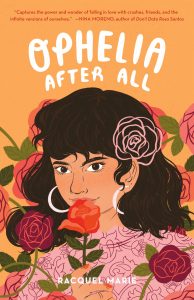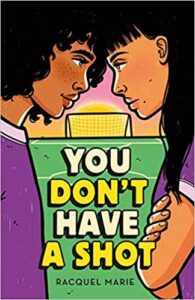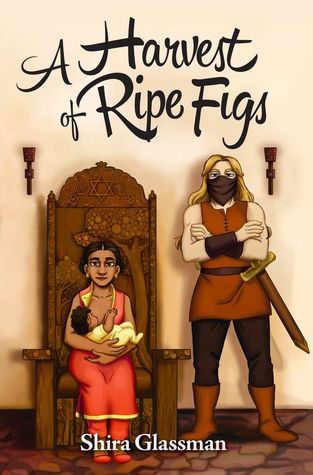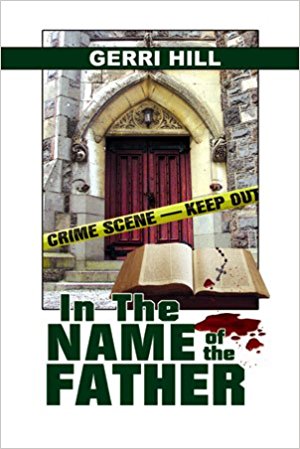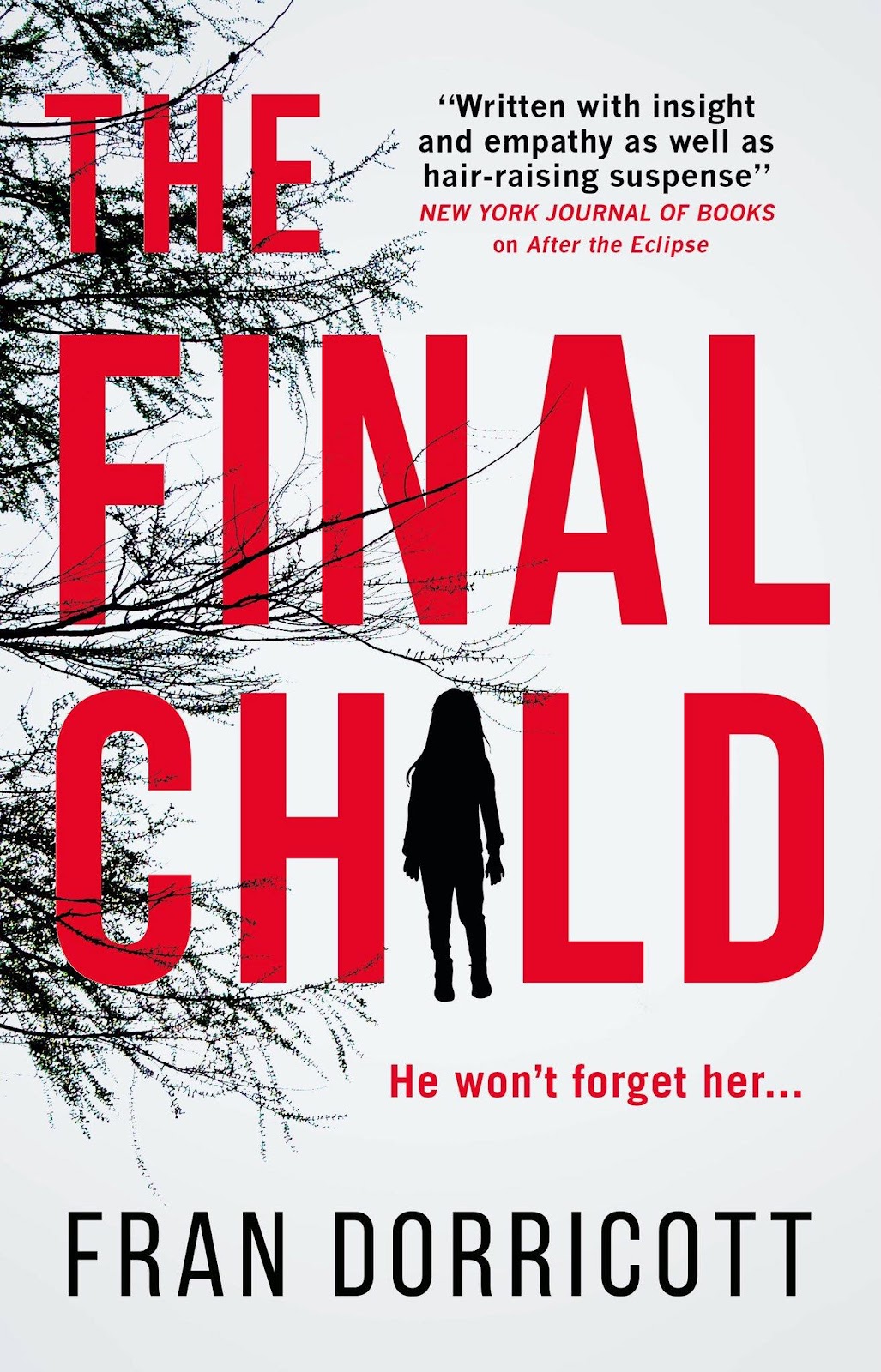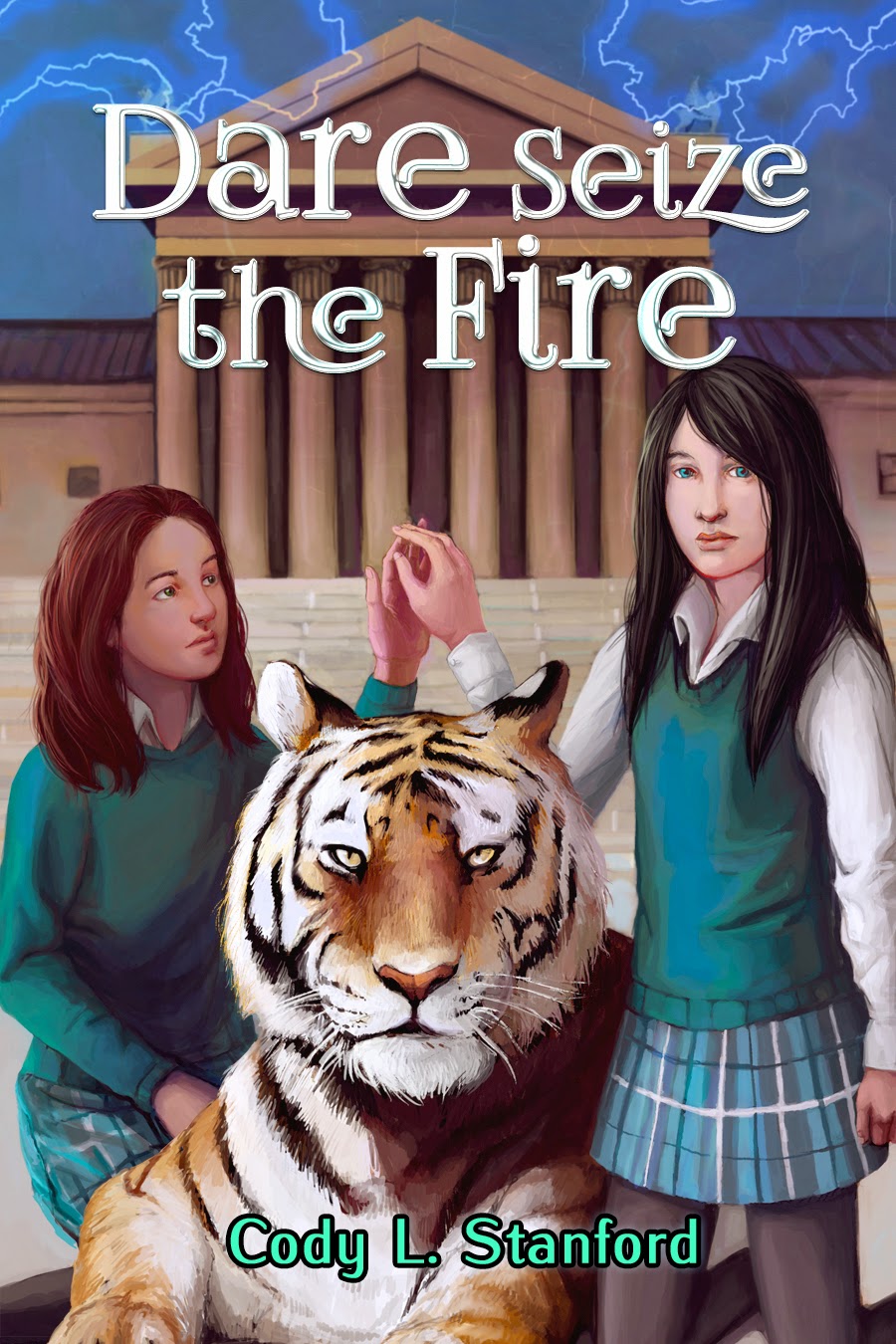Recently, I got to read Racquel Marie’s debut and sophomore releases: Ophelia After All and You Don’t Have a Shot. While the two books had different focuses, they were both compulsively readable coming-of-age stories, and I think any reader of sapphic contemporary YA will find at least one of them to be up their alley.
Though it isn’t common for me to read a novel in a single day, once I started reading Ophelia After All, I couldn’t put down it down—first for the friendly banter, then for the drama slowly layering upon itself as two friend groups become entangled, and finally for the meaningful conclusion.
Ophelia Rojas is known for a few things: meticulously caring for a rose garden, being named after a Shakespeare character, and having a steady stream of crushes on boys. When she realizes the person she really wants to ask to prom is Talia Sanchez, a quiet sapphic girl, her image of herself comes into question. As a biracial Cuban American who is not enmeshed in a local Cuban community, she already struggles with her self perception and where exactly she fits, which adds to her anxieties about questioning her identity. As her friend group prepares for prom and graduation, Ophelia fears that during this already precarious transitional time, nobody will be able to handle changing their perception of her.
Though Ophelia is known for wearing her heart on her sleeve, she starts bottling up her feelings when she’s afraid of betraying other people’s expectations. Once the relationship drama amongst her group comes to a head, she doesn’t make all the right decisions, but I still found her easy to empathize with. She’s a charming and intensely human character trying to deal with her internal contradictions while her external life spins out of control.
Like Ophelia herself, this book refuses to be put in a box. Though it deals plenty with crushes, it is not a romance. It has a wry narrative voice and an earnest core. It turns clichés on their head without belittling them, which is a difficult thing to manage.
Above all, what I love about this book is that it respects teenagers. It depicts all kinds of different experiences with crushes and dating, whether someone has had zero crushes or a hundred, without stigma. It simultaneously recognizes that teen romance is unlikely to have a fairy tale ending without acting like that makes teens’ feelings less real. It’s willing to simply acknowledge and explore those feelings for what they are in the moment, in all their messiness, as well as to acknowledge that teens have so much else to their lives beyond romance. This book also shows that conflict often comes not from ill intentions, but from people’s wants and needs conflicting with each other’s, and from people acting from a place of fear or a lack of understanding.
All of that, and this book still offers plenty of flower facts, Shakespearean references, and heart.
With that book fresh on my mind, I sought out the author’s second book, You Don’t Have a Shot, a YA contemporary sports romance between two longtime rivals who find themselves co-captaining a team at soccer camp. The last time they met on the field, the main character, Valentina Castillo-Green, started a fight with Leticia Ortiz that cost Vale her role as soccer captain. Vale is thus less than pleased that her only remaining shot to catch college recruiters’ eyes on the field may be for their team to win the soccer camp’s tournament—especially when she shows up to practice to find that some of her teammates can barely dribble a ball.
Though for somewhat different reasons, I enjoyed this book just as much as the author’s debut. Where Ophelia After All turns genre expectations on their head, You Don’t Have a Shot runs gleefully toward them, truly showcasing the epic highs and lows of high school soccer. It features an underdog team that needs to come together to progress through the tournament, with all of the drama, training montages, and motivational speeches that implies—and of course, it will all be for nothing if the protagonist can’t learn the true meaning of teamwork.
Just as earnestly trope-y is the romance between Vale and Leticia. The author’s penchant for banter is a natural fit for a rival-to-lovers romance, and it becomes the glue of their dynamic as their proximity pushes it to gradually shift. I appreciated how gradual that shift was, with this book offering a true slow burn that was willing to linger in each stage of the dynamic and the transitions between them. Their animosity is not simply brushed aside, and the trust they must slowly develop both on and off the field had me rooting for them after each moment of accidental, breathless tenderness. I also appreciated how the protagonist’s asexuality was casually woven into her story. This sort of hate-to-love romance often relies on sexual tension to carry it, but that’s not the only way to convey this kind of chemistry.
What made me personally love this book was its protagonist. In the beginning, Vale is an overly analytical, self-centered person who only cares about pulling off flawless victory after flawless victory—for herself, not for her team or the love of the game. This may not seem like a draw to everyone, but I have a soft spot for teen girl characters who have been sold on the idea that their worth relies on them being perfect in their specific field, and who sabotage their chances at true happiness until the consequences of their actions, and the people around them, force them to change.
In Vale’s case, her beliefs are the fault of her exceedingly critical father. Ever since her mother died, Vale has strived only to live up to her father’s standards, in the process isolating herself while seeing only the flaws in herself and other people. Learning to do right by others would mean learning to do right by herself, a step she is not ready for. Leticia’s influence unquestionably aids in her growth, but so does Vale being away from home and having a new team counting on her. I was especially charmed by a side character named Marley, a bubbly, optimistic trans girl who shows up to practice in glitter and has her own role to step into. I also enjoyed Vale’s relationships with her two younger brothers and the dimension that added to her family dynamic.
I recommend YA contemporary readers pick up Ophelia After All for an exploration of identity and an unconventional take on teen drama, and You Don’t Have a Shot for a fun, heartfelt sports romance.
Content notes for Ophelia After All: a few instances of homophobia and biphobia
Content notes for You Don’t Have a Shot: an emotionally abusive parent, discussions of parental death, and depictions of bullying and xenophobia
